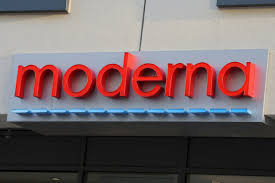Moderna RSV vaccine, FDA delay, vaccine approval process, mRNA-1345, RSV vaccine market, Moderna stock, pharmaceutical investment, vaccine efficacy, prefilled syringe advantage, Moderna FDA update
The FDA has postponed its decision on Moderna’s mRNA-1345 RSV vaccine to the end of May due to administrative constraints. Explore what this delay means for Moderna, its investors, and the competitive RSV vaccine market as the company aims to compete with established players like GSK and Pfizer.

The pharmaceutical world is watching closely as Moderna faces a critical juncture with its respiratory syncytial virus (RSV) vaccine, mRNA-1345. Originally scheduled for a decision on May 12, the U.S. Food and Drug Administration (FDA) has now postponed this date to the end of the month due to “administrative constraints.” This delay, although not related to any issues with the vaccine itself, marks a significant moment for Moderna as it aims to become a key player in the lucrative RSV vaccine market.
The Importance of Timing in Vaccine Approval
The FDA’s decision to delay its verdict on Moderna’s RSV vaccine underscores the complex and often unpredictable nature of vaccine approval processes. Moderna’s President, Stephen Hoge, M.D., expressed the company’s readiness to assist the FDA to expedite the review process. Despite the delay, the absence of any significant concerns from the FDA suggests that the vaccine could likely pass the regulatory scrutiny within the current biologics license application review cycle.
Investor response, as noted by analysts at William Blair, remains optimistic. The general sentiment is that while the delay is a setback, it is not indicative of any underlying problems with the vaccine’s data or potential for approval. This perspective is crucial as it influences not only the market dynamics but also the confidence of stakeholders in Moderna’s ability to navigate regulatory landscapes.
Financial Implications and Market Dynamics
The shift in the decision date has had a tangible impact on Moderna’s stock price, which saw a slight decline following the announcement. This reaction reflects the market’s sensitivity to regulatory news, especially concerning new vaccines that have significant market potential. Moderna’s entry into the RSV vaccine market is particularly notable as it is poised to be the third major player behind giants like GSK and Pfizer, competing in a market valued at approximately $10 billion for adult RSV vaccines.
The RSV vaccine market is competitive, with GSK’s Arexvy and Pfizer’s Abrysvo already established, having shown efficacies of 67.2% and 66.7%, respectively. Moderna’s vaccine, while not showing the same blockbuster efficacy as its COVID-19 vaccine did, presents a unique value proposition in terms of administration. The company touts its prefilled syringe as a significant logistical advantage that could make it the preferred choice among pharmacists for ease of use.
Clinical and Strategic Considerations
One of the critical aspects that Moderna and potential investors must consider is the durability of the RSV vaccine’s efficacy. Moderna reported a drop in efficacy of 20 percentage points from the three-month mark to nine months post-vaccination. This reduction is a crucial factor in the long-term success and acceptance of the vaccine, especially when compared to the slightly more stable performances of its competitors’ offerings.
Despite these challenges, Moderna is not deterred. CEO Stephane Bancel highlighted ongoing efforts to engage with pharmacists daily, ensuring that the vaccine’s administration is as streamlined as possible. This hands-on approach may well give Moderna the edge it needs to carve out a significant share in the RSV market.
Looking Ahead: Regulatory and Market Outlook
As Moderna awaits the FDA’s final decision by the end of May, the upcoming Advisory Committee on Immunization Practices (ACIP) meeting in June remains a pivotal milestone. This meeting will likely influence immunization practices and recommendations, which are crucial for the vaccine’s adoption and market penetration.
The delay in FDA approval is a nuanced setback for Moderna but also a testament to the complexities of bringing a new vaccine to market. The company’s proactive engagement with pharmacists and strategic focus on the ease of vaccine administration are pivotal elements that could differentiate it in a competitive landscape.
In conclusion, while the delay is not ideal, the foundations are set for Moderna to potentially become a key player in the RSV vaccine market. The coming weeks will be crucial for Moderna as it navigates regulatory challenges and prepares to make a significant impact on public health through its innovative vaccine solutions.
Read More-
- Apple AI Evolution: Powering Future Innovations with M2 Ultra and M4 Chips
- Leadership Transition at Cornell University: Martha Pollack Retires Amid Ivy League Changes
- The US Department of Education New FAFSA Support Initiative
- Senate Passes $105 Billion FAA Bill: Major Advances in Air Safety and Passenger Services